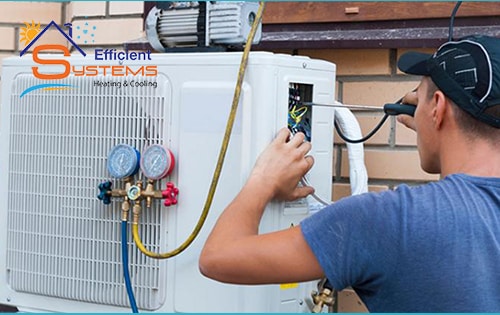Understanding Your HVAC System
The majority of modern homes in Utah have HVAC systems installed. Now that the cold season is fast approaching, you need to learn to prepare by Winterizing your HVAC system.
For those who are not familiar with HVAC, it means heating, ventilation, and air conditioning. These systems are keeping your home or business space comfortable all year round. Your family is kept cool during the summer and warm during the winter.
Aside from controlling the temperature, today’s HVAC systems can remove impurities and keep the air clean. They use vents and air ducts to distribute the heated or cooled air all over your home or office.
If you own an older home with no centralized heating and cooling system, an HVAC system is a most welcome addition for your family.
Installing an HVAC system can lower energy bills compared to your space heaters and window AC units.
It may cost a lot up front, but the benefits are worth it in the long run.
Ask for recommendations from an HVAC installation expert regarding an affordable and reliable system that is good for your needs.
Now that you’ve chosen your HVAC system, it’s time to prepare it for the winter season ahead.
Preparing Your HVAC System The Cold
As the season changes from summer to fall, homeowners can enjoy energy savings by opening windows and powering down AC units.
Things are about to change soon as winter approaches, homes and offices will need to turn up the heat.
The question is, does your HVAC system ready to handle this year’s chill?
Winterizing your HVAC system is an important step in preparing your HVAC system for the cold months ahead.
Routing maintenance done twice a year can help your system keep up with the seasonal changes.
Imagine being without heat in the middle of a snowstorm?
Newer systems need less maintenance, a quick tune-up is enough to keep your system running efficiently all winter long.
Furnace maintenance should be handled by a professional HVAC company for your peace of mind.
If you notice unusual sounds with your furnace, moisture on windows, or rust and dirt accumulation on the air ducts, you should ask your technician for a check-up.
A certified technician will perform a comprehensive diagnostic check aside from the regular maintenance tasks.
All parts will be cleaned, drained, and lubricated. Controls will be tested if they are working properly. A thorough inspection will be performed to see if your heat exchanger is working properly and if there are no cracks and corrosion.
When the maintenance tasks are done, you can be sure that your system will be running at peak condition and provide comfort for your family all winter long.

How To Maintaining Your HVAC System Before Winter
As we enjoy the fall season, we might think that winter is far off. But when the first snowstorm hits and you discover that your furnace isn’t working you regret that you didn’t deal with the problem sooner.
Winterizing your HVAC system a few months before winter starts is a good practice. Proper maintenance is key to prolong the life of any machine, including your HVAC system.
The best time for HVAC maintenance and tune-ups is during the summer and fall seasons because this is the time when you need your systems the least.
Bi-annual check-ups with your HVAC technician can ensure that your system is in top condition when you need it the most.
Before your technician arrives, you can perform an inspection by checking for unusual sounds, odors, leaks in ductwork, and other signs that your unit is not working properly.
You can give a heads up to your technician so that he can double-check for issues.
Turning your furnace on at least three times before winter can help you check if everything is operating properly.
Set the thermostat to winter settings and see if the house reaches the desired temperature.
A common cause of HVAC breakdowns is dust and grime in the filtering system. Filters should be checked monthly and replaced every 90 days or earlier if you live in a location where pollution is high.
A dirty filter is ineffective and it makes your system work harder than normal. Keeping a backup filter is a smart move so you can easily change parts when needed.
Checking and cleaning air vents and ducts throughout your home is a good way to winterize your HVAC system. Dust and dirt buildup can cause blockages and poor airflow in your home.
